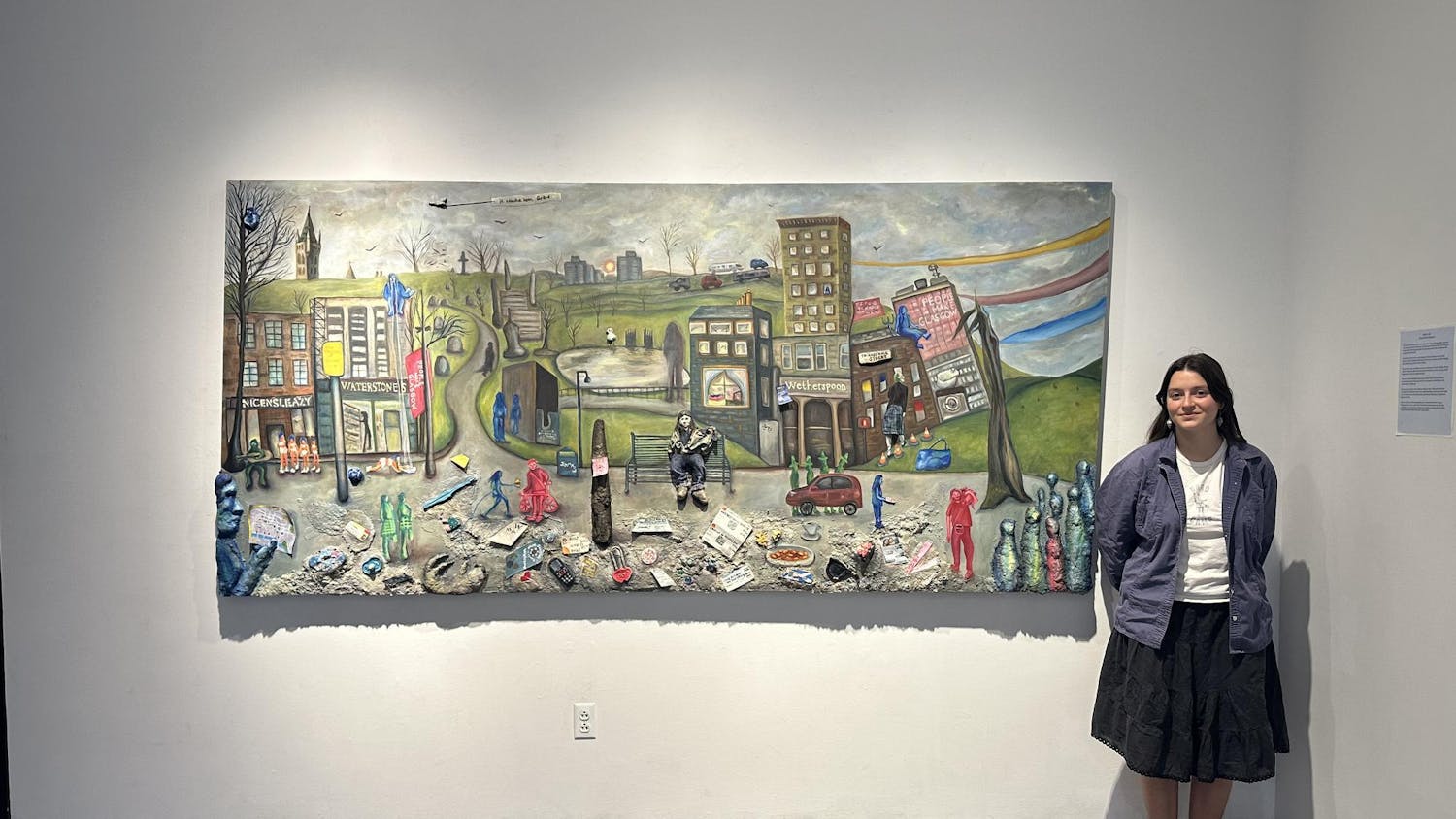Musical theater writing and performance were combined in a talk by American composer and lyricist Maury Yeston in Leeds Theater Thursday evening.
In a discussion that wove back and forth from speech to singing, with Yeston at the piano, the composer stressed that the music and lyrics of a song have to lead to something that moves the audience. Yeston performed multiple musical pieces, primarily his own. Some songs provoked laughter, while others clearly moved some members of the audience nearly to tears.
Yeston is known for writing the music and lyrics to Broadway musicals such as "Nine" in 1982 and "Titanic" in 1997, both of which won the Tony Awards for best musical and best score. Yeston's current projects include the film adaptation of "Nine" with a cast that includes Daniel Day-Lewis, Penelope Cruz, Judi Dench, Nicole Kidman and Sophia Loren.
Yeston began the talk with an analysis of what song is. "You have to forget every theoretical construct you may have in your head about song," Yeston said. "Song is not a chemical mixture, it is a compound. It is its own category."
"What is the first question you have to ask when you hear a song?" Yeston asked the audience. "What is it for? What is its function?"
Of all the different parts that make up a piece of music, it's the "premise," according to Yeston — the narrative context of the song — that is most important.
The most moving premise comes when a character faces adversity with confidence, he said.
"Since the character won't feel his own self-pity, it is thrown into our laps and we feel it for him."
Furthermore, according to Yeston, music and lyrics should work together so that the story can be visualized without needing to be physically seen.
"Musical theater has to work as a radio play," Yeston said. "If it doesn't work with nothing, it'll never work."
As he played a few lines from the opening of "Titanic," he verbalized what the music was telling listeners — "And once there was a ship ... that sank ... but not yet," he said — as the music began, grew graver and then became lighter again.
Yeston hailed the moments in theater when the audience feels it knows a secret not shared with the characters on stage. The fact that the audience already knew the story of the Titanic added to the emotional impact of the musical, he said.
Most of those present at the event were Brown students. When Yeston asked the audience members if they had a strong interest in pursuing vocal performance, composition or lyrics writing, a majority of students raised their hands.
During the question-and-answer section of the talk, Yeston was asked about the frequently pronounced death of the musical. Yeston responded, "The musical is more alive than ever."
"More people are learning to create it and learning the craft of it than ever before," said Yeston. "I have very good feelings about it."




